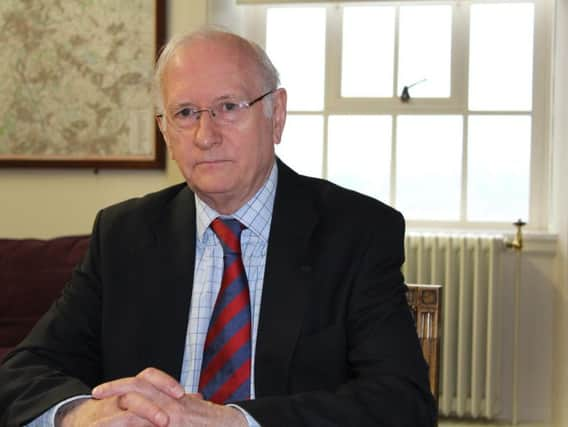Stop and search checks plunged in years ahead of Sheffield's knife crime surge


Statistics show that in 2013 officers conducted more than 22,000 searches on the streets but over a six months period ending in February this year, little more than 1,000 were conducted, which would suggest an annual figure of just over 2,000.
The current year has seen a surge in knife related incidents which has resulted ‘S60’ orders being introduced on a limited basis in some areas of Sheffield, providing officers with increased powers to carry out searches.
Advertisement
Hide AdAdvertisement
Hide AdChief Constable Stephen Watson and his senior officers are now encouraging patrol staff to return to carrying out more stop and searches – provided they are done following the correct rules – because they are seen as a valuable way of identifying those carrying weapons and also to act as a deterrent.
The use of stop and search has a chequered history, because in many areas – including Sheffield – those from minority ethnic backgrounds have been the most likely to become the targets for police attention.
That disparity has been the subject of longstanding investigations, with South Yorkshire Police Authority – the body which preceded the Police and Crime Commissioner in South Yorkshire – commissioning its own research into how stop and search was operated.
The huge fall in numbers of searches conducted by the South Yorkshire force corresponded to an initiative launched in 2014 by then Home Secretary Theresa May to reduce the use of such tactics.
Advertisement
Hide AdAdvertisement
Hide AdPolice and Crime Commissioner Dr Alan Billings is now responsible for the South Yorkshire force and he has an independent ethics panel which has investigated and reported back on the issue.
Their report states: “Against the background of a rise in knife crime, particularly in London, the view is gaining ground that stop and search powers can offer valuable public protection.
“For example, during this year the Commissioner found at a public meeting in Burngreave, Sheffield, that mothers of young adults expressed that view.
“In South Yorkshire there was a 15 per cent increase in knife crime in 2017/18 compared with the previous period.
Advertisement
Hide AdAdvertisement
Hide Ad“Following a period in which officers have become more hesitant to exercise powers of stop and search, not least because of negative comment from Her Majesty’s Inspectors, South Yorkshire Police took the initiative and issued fresh written guidance to its officers, backed up with a video message from the Chief Constable.”
Panel members were invited by police to scrutinise their handling of stop and search incidents and the report states: “The panel was greatly reassured to learn that the public readily cooperated when they were used, for example when a ‘knife arch’ metallic search device was set up in Carver Street in Sheffield.”
Figures for South Yorkshire show black, Asian and other visibly ethnic minority citizens were almost three times as likely last year to face stop and search as other citizens, a figure which has fallen from 3.6 times as likely two years previously.
Although the panel acknowledges black and minority ethnic citizens make up a disproportionate number of the victims of violent crime, which may account for the situation, they still recommend further research.